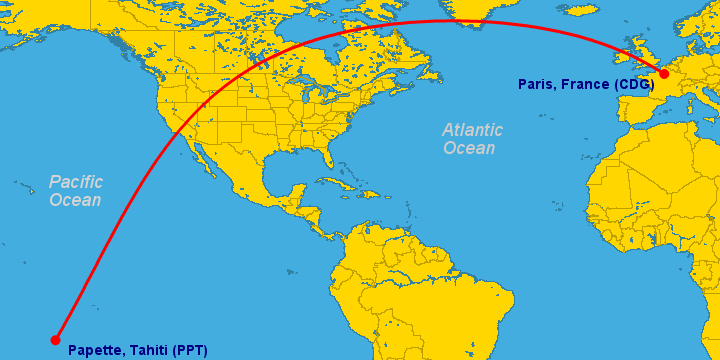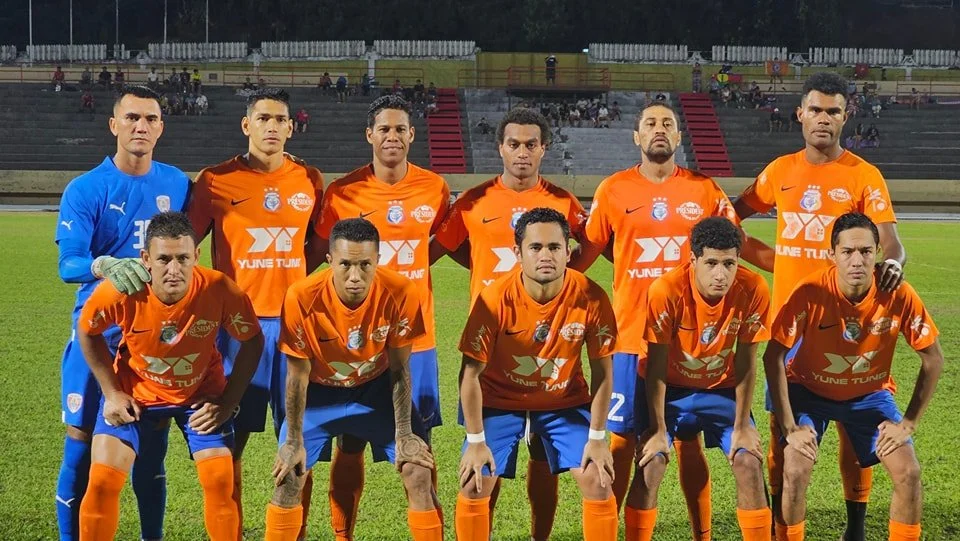How the Coupe de France is a Global Football Competition
The Coupe de France, a staple of French footballing tradition, is a competition that runs from the top division and down to the depths of the French lower leagues.
Much like the FA Cup in England, this competition allows smaller clubs to gain notoriety, financial benefits and exciting ties against the giants of the competition. The Coupe de France however is slightly different, in fact, teams can travel thousands of miles to play a singular cup game.
The main difference between the FA Cup and the Coupe de France is that the French Football Federation (FFF) allow teams from the nation’s overseas territories to enter the competition.
The Geography
If you know your geography, then you know what’s coming. This format can potentially put clubs such as PSG and Monaco up against teams from Mayotte, Guadeloupe, Martinique or even French Guiana.
Some may not have heard of these places, but they are all part of the Republic of France, French Guiana borders Brazil in South America, Réunion is a small island to the east of Madagascar, Martinique is part of the Caribbean islands and New Caledonia is part of Oceania. Each one of these territories is allowed to participate in the Coupe de France.
A Gulf In Class?
Why is this relevant though? Surely the clubs from these territories are unable to compete with the big hitters of the French mainland.
Well, just this year in the current rendition of the Coupe de France a story had developed, and unfortunately ended, but it caught the attention of many.
Firstly, we need to understand the ins and outs of the format for the overseas teams. The early stages of the competition require the clubs from the overseas territories to play a domestic competition, the winner of this competition from each nation is then entered into the 7th round of the Coupe de France (14 rounds in total).
Some regions now send two clubs if they win their own respective cup competitions.
AS Dragon
The main attraction of this story is that of AS Dragon, a team from the French overseas territory of Tahiti, on the other side of the globe in Oceania.
Tahiti is a small island with a population of 200,000 people with around two-thirds of the population living in the capital of Papeete.
Compare that to the 68 million people living on the mainland, a stark contrast and one that makes this story all the more interesting. The club play out of Stade Pater, an 11,700-capacity multi-use stadium, hosting predominantly football games and athletics.
YOU MAY ALSO LIKE: Rags, Riches and Liquidation: The Story of Gretna FC
The Draw
The shock result from the Tahitians came in the seventh round of the Coupe de France, playing at home As Dragon hosted mainlanders and French 4th division outfit US Avranches.
A home game in the cup, a dream draw for AS Dragon, welcoming a mainland team to their island, a long journey before any game is never the best preparation so there was always a chance for the islanders.
Avranches had to embark on a 15,750-kilometre journey just to fulfil the fixture. A journey which the FFF funds. The vast majority of these long journeys to and from the overseas territories are funded by the FFF in an attempt to please clubs that are unwilling to pay such travel fees, particularly the smaller clubs that cannot afford them.
The scouting of such clubs as AS Dragon for the mainland clubs cannot be easy, the limited data and footage of the league games are not easy to get hold of so preparation is difficult. This became very apparent in the first half of this 7th-round Coupe de France tie.
AS Dragon, the team from tiny Tahiti gave the mainlanders the shock of a lifetime, racing into a two-goal lead thanks to goals from Gervais Chan Kat and Tamatoa Tetauira. Heading into the break at 2-0 it’s hard to determine the atmosphere in either dressing room.
However, in the second half the mainlanders Avranches clicked and fought themselves back into the game scoring in the 70th minute through Jessy Pi and then equalising in the 81st minute through Noa-Grace Di-Tshibalabala Mupemba. A great comeback on the other side of the globe but the work wasn’t over.
The game finished level and ended up at penalties. Unbelievably, AS Dragon came through victorious on penalties, a 4-3 shootout win to send the islanders to the 8th round of the Coupe de France.
Into The Next Round
Travelling back from any defeat, whether that be on a team bus, a car or a plane, the atmosphere is never joyous, but to have a 15,750-kilometre flight might be one of the worst scenarios to be in after a defeat.
Unfortunately for the Tahitian club, they don’t travel well either, succumbing to a 6-1 defeat to fifth-division side SU Dives with Manuarii Hauata scoring an 84th-minute consolation goal for AS Dragon.
Previous Overseas Successes
Looking back only on three occasions has an overseas team reached the round of 32 in the Coupe de France.
Firstly occurring in the 1988-89 season when ASC Le Geldar of South American French Guiana reached this stage but quickly discovered the skill difference when they played and lost 11-0 on aggregate (now one-leg ties) against Ligue 1 side Nantes.
The second occurrence was in 2019-20, when JS Saint-Pierroise from the island of Réunion lost 1-0 away in the mainland to SAS Épinal.
The third and final time such a club has reached the round of 32 came in the following season of 2020-21, Club Franciscain from Martinique again got the away draw and travelled to the mainland to suffer a 5-0 defeat to now Ligue 1 side Angers.
Tahitian Progression?
So, what now for AS Dragon? The Tahitian Ligue 1 is in its early stages this season with AS Dragon sitting 3rd after six games but have a game in hand over the two teams above them, AS Vénus and Tefana.
The club’s main focus will be on the league and to try and win the title but now they’ve had a taste of success in the Coupe de France perhaps next season they will challenge the mainlanders again and improve on their already impressive outing this time around.
Will we see a day when an overseas team progresses into the last 16? Who knows but it is something that needs to be kept an eye on. These territories may be small, but they are not lacking in football culture.
Hopefully, one day, there will be an opportunity for us to write about PSG, Monaco, Marseille or someone else travelling across the globe to one of these small islands for a Coupe de France tie, and for this writer there will be hope of an upset.
Researched and Written by BSc Cavan Campbell
READ NEXT: Football From Within The Arctic Circle


